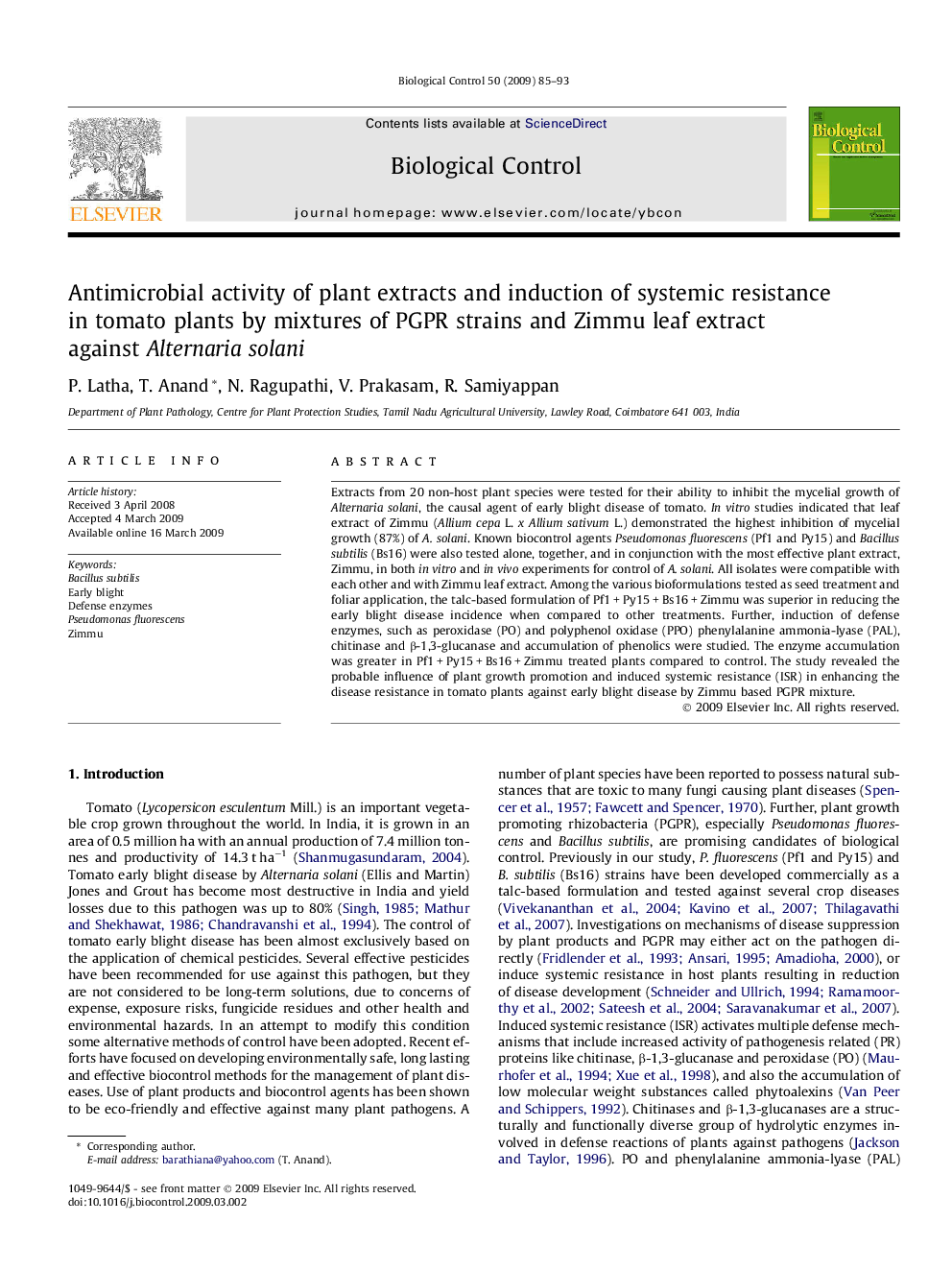| Article ID | Journal | Published Year | Pages | File Type |
|---|---|---|---|---|
| 4504633 | Biological Control | 2009 | 9 Pages |
Extracts from 20 non-host plant species were tested for their ability to inhibit the mycelial growth of Alternaria solani, the causal agent of early blight disease of tomato. In vitro studies indicated that leaf extract of Zimmu (Allium cepa L. xAllium sativum L.) demonstrated the highest inhibition of mycelial growth (87%) of A. solani. Known biocontrol agents Pseudomonas fluorescens (Pf1 and Py15) and Bacillus subtilis (Bs16) were also tested alone, together, and in conjunction with the most effective plant extract, Zimmu, in both in vitro and in vivo experiments for control of A. solani. All isolates were compatible with each other and with Zimmu leaf extract. Among the various bioformulations tested as seed treatment and foliar application, the talc-based formulation of Pf1 + Py15 + Bs16 + Zimmu was superior in reducing the early blight disease incidence when compared to other treatments. Further, induction of defense enzymes, such as peroxidase (PO) and polyphenol oxidase (PPO) phenylalanine ammonia-lyase (PAL), chitinase and β-1,3-glucanase and accumulation of phenolics were studied. The enzyme accumulation was greater in Pf1 + Py15 + Bs16 + Zimmu treated plants compared to control. The study revealed the probable influence of plant growth promotion and induced systemic resistance (ISR) in enhancing the disease resistance in tomato plants against early blight disease by Zimmu based PGPR mixture.
